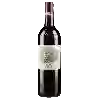
Château Lafite RothschildPauillac (Premier Grand Cru Classé)
This wine is a blend of 4 varietals which are the Cabernet franc, the Cabernet-Sauvignon, the Petit Verdot and the Merlot.
In the mouth this red wine is a powerful with a nice balance between acidity and tannins.
This wine generally goes well with poultry, beef or game (deer, venison).
The Pauillac (Premier Grand Cru Classé) of the Château Lafite Rothschild is in the top 70 of wines of France and in the top 5 of wines of Pauillac.
Taste structure of the Pauillac (Premier Grand Cru Classé) from the Château Lafite Rothschild
Light | Bold | |
Smooth | Tannic | |
Dry | Sweet | |
Soft | Acidic |
In the mouth the Pauillac (Premier Grand Cru Classé) of Château Lafite Rothschild in the region of Bordeaux is a powerful with a nice balance between acidity and tannins.
Wine flavors and olphactive analysis
On the nose the Pauillac (Premier Grand Cru Classé) of Château Lafite Rothschild in the region of Bordeaux often reveals types of flavors of iron, cream or cherry and sometimes also flavors of citrus, smoke or apples.
Food and wine pairings with Pauillac (Premier Grand Cru Classé)
Pairings that work perfectly with Pauillac (Premier Grand Cru Classé)
Original food and wine pairings with Pauillac (Premier Grand Cru Classé)
The Pauillac (Premier Grand Cru Classé) of Château Lafite Rothschild matches generally quite well with dishes of beef, lamb or poultry such as recipes of shepherd's pie (quebec!), milk-fed lamb sautéed with saffron and lemon or traditional tunisian couscous.
Details and technical informations about Château Lafite Rothschild's Pauillac (Premier Grand Cru Classé).
Discover the grape variety: Cabernet franc
Cabernet Franc is one of the oldest red grape varieties in Bordeaux. The Libourne region is its terroir where it develops best. The terroirs of Saint-Emilion and Fronsac allow it to mature and develop its best range of aromas. It is also the majority in many blends. The very famous Château Cheval Blanc, for example, uses 60% Cabernet Franc. The wines produced with Cabernet Franc are medium in colour with fine tannins and subtle aromas of small red fruits and spices. When blended with Merlot and Cabernet Sauvignon, it brings complexity and a bouquet of aromas to the wine. It produces fruity wines that can be drunk quite quickly, but whose great vintages can be kept for a long time. It is an earlier grape variety than Cabernet Sauvignon, which means that it is planted as far north as the Loire Valley. In Anjou, it is also used to make sweet rosé wines. Cabernet Franc is now used in some twenty countries in Europe and throughout the world.
Last vintages of this wine
The best vintages of Pauillac (Premier Grand Cru Classé) from Château Lafite Rothschild are 2009, 2003, 2000, 1999 and 1997.
Informations about the Château Lafite Rothschild
The Château Lafite Rothschild is one of of the world's greatest estates. It offers 8 wines for sale in the of Pauillac to come and discover on site or to buy online.
The wine region of Pauillac
The wine region of Pauillac is located in the region of Médoc of Bordeaux of France. Wineries and vineyards like the Château Latour or the Château Lafite Rothschild produce mainly wines red, pink and other. The most planted grape varieties in the region of Pauillac are Cabernet-Sauvignon, Merlot and Cabernet franc, they are then used in wines in blends or as a single variety. On the nose of Pauillac often reveals types of flavors of iron, milk chocolate or apricot and sometimes also flavors of coconut, toasted bread or tomatoes.
The wine region of Bordeaux
Bordeaux, in southwestern France, is one of the most famous, prestigious and prolific wine regions in the world. The majority of Bordeaux wines (nearly 90% of the production Volume) are the Dry, medium and Full-bodied red Bordeaux blends for which it is famous. The finest (and most expensive) are the wines of the great châteaux of Haut-Médoc and the right bank appellations of Saint-Émilion and Pomerol. The former focuses (at the highest level) on Cabernet Sauvignon, the latter on Merlot.
The word of the wine: Local wine
Table wine, but with the origin indicated. It corresponds to a particular legislation: the freedom to use grape varieties is greater than for the AOC, but the quality criteria such as the approval tastings can sometimes be more demanding. The legislation is still evolving, but for the moment there are three levels: regional (e.g. Vin de Pays d'Oc), departmental and local (e.g. Côtes de Thongue).











